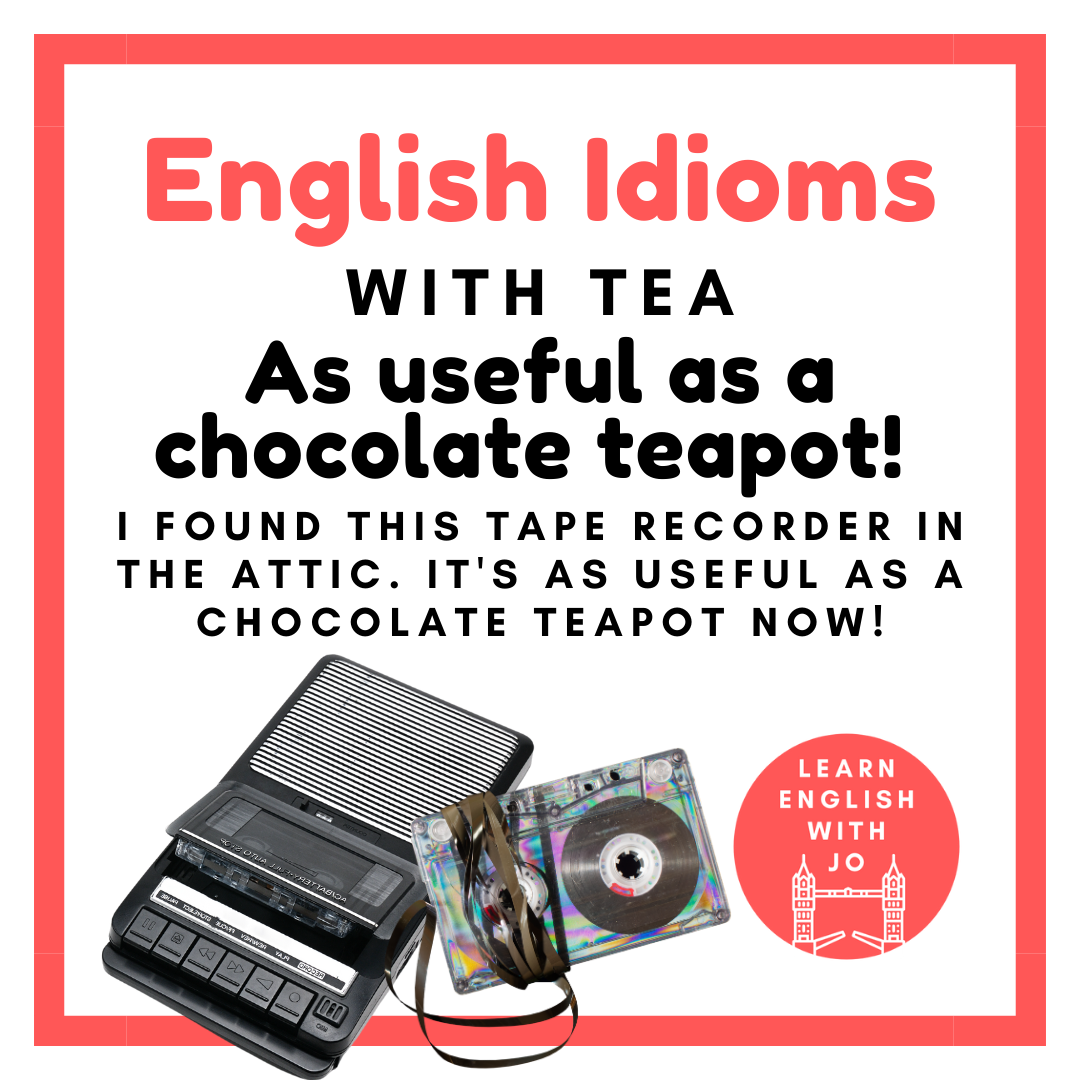Common English idioms with tea.
Have you ever heard of the English idiom ‘a storm in a teacup?’ Today, we're looking at some commonly used English idioms that feature a popular British beverage: tea. We’re going to start with a modern idiom ‘spilling the tea’ and finish with one of my favourites, ‘as useful as a chocolate teapot.’
1. To spill the tea
Meaning: To share gossip or reveal secret information.
Example: Did you hear what happened at the party last night? Come on, spill the tea!
Explanation: When someone ‘spills the tea’ it means they are sharing the juicy details or gossip about something. It's like saying, ‘Tell me everything!’
2. Not my cup of tea
Meaning: Something that one does not like or is not interested in.
Example: I know everyone loves the new action movie, but it's not my cup of tea.
Explanation: This idiom originates from British English, where tea is a favorite beverage. When you say something is ‘not my cup of tea,’ you're expressing that it doesn't suit your tastes or interests, much like a type of tea you wouldn't enjoy drinking.
3. A storm in a teacup
Meaning: A small or insignificant problem that has been exaggerated.
Example: I can't believe they're arguing over who gets to sit in the front seat. It's just a storm in a teacup.
Explanation: Imagine a tiny teacup. How big can a storm really be in such a small space? This idiom is used to describe a situation where people are making a big deal out of something that’s really not important.
4. As useful as a chocolate teapot
Meaning: Something that is completely useless.
Example: I tried using that old phone, but it's as useful as a chocolate teapot.
Explanation: Picture a teapot made of chocolate. The moment you pour hot water into it, the teapot would melt, making it utterly useless. This idiom is a humorous way to say that something cannot perform its intended function at all.








